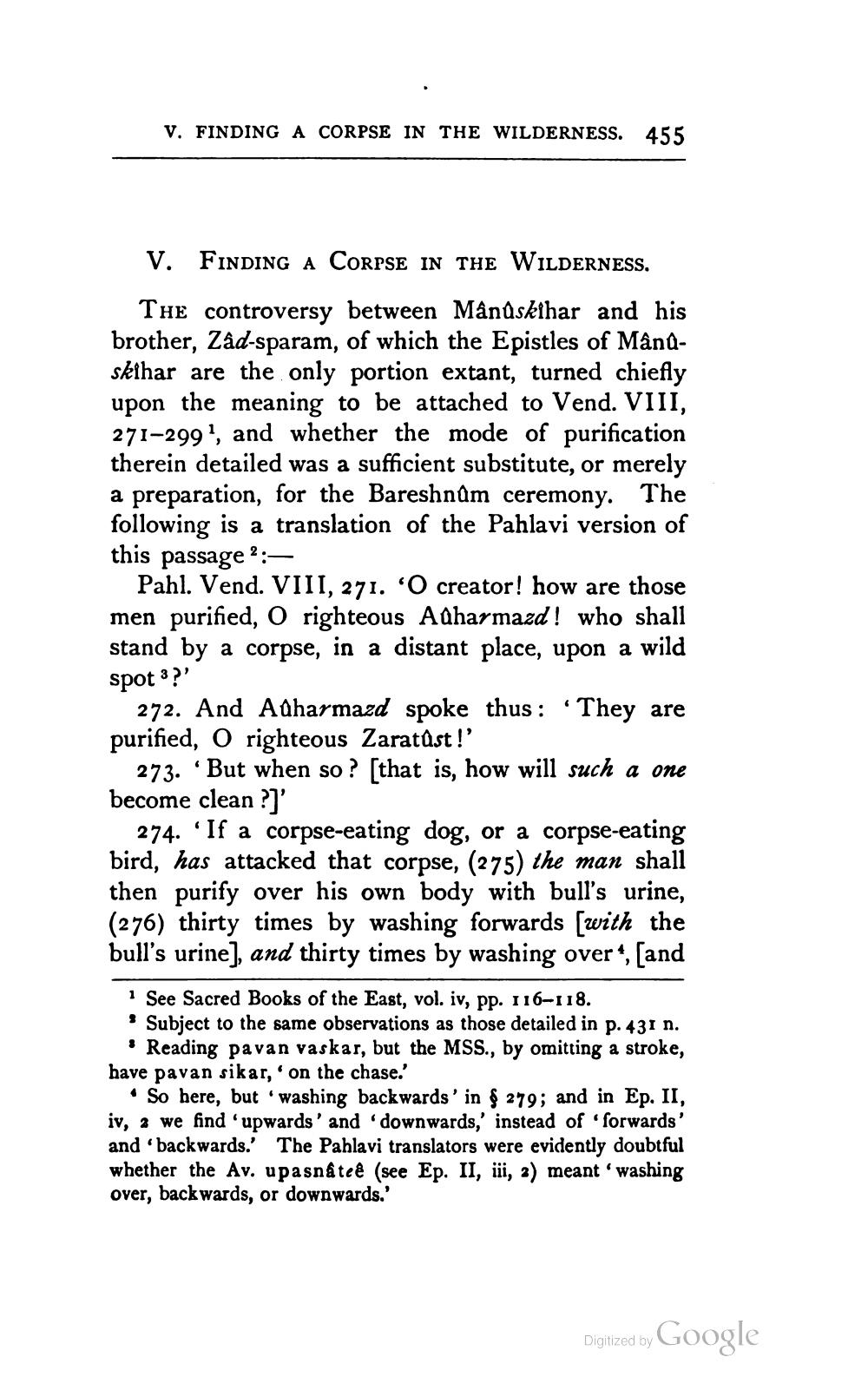________________
V. FINDING A CORPSE IN THE WILDERNESS. 455
V. FINDING A CORPSE IN THE WILDERNESS.
The controversy between Mânäskihar and his brother, Zad-sparam, of which the Epistles of Mânaskihar are the only portion extant, turned chiefly upon the meaning to be attached to Vend. VIII, 271-299', and whether the mode of purification therein detailed was a sufficient substitute, or merely a preparation, for the Bareshnům ceremony. The following is a translation of the Pahlavi version of this passage ?:
Pahl. Vend. VIII, 271. 'O creator! how are those men purified, O righteous Adharmazd! who shall stand by a corpse, in a distant place, upon a wild
spot 3?'
272. And Adharmazd spoke thus: “They are purified, O righteous Zaratast!'
273. “But when so ? (that is, how will such a one become clean ?]'
274. 'If a corpse-eating dog, or a corpse-eating bird, has attacked that corpse, (275) the man shall then purify over his own body with bull's urine, (276) thirty times by washing forwards (with the bull's urine), and thirty times by washing over", [and
See Sacred Books of the East, vol. iv, pp. 116-118. * Subject to the same observations as those detailed in p. 431 n.
. Reading pavan vaskar, but the MSS., by omitting a stroke, have pavan sikar, on the chase.'
• So here, but washing backwards' in $ 279; and in Ep. II, iv, we find upwards' and 'downwards,' instead of forwards' and backwards.' The Pahlavi translators were evidently doubtful whether the Av. upasnated (see Ep. II, ii, 2) meant washing over, backwards, or downwards.'
Digitized by Google




